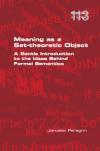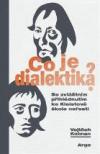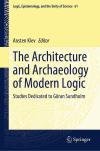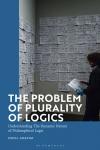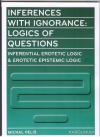
Meaning as a Set-theoretic Object
Any comprehensive account of natural language must involve an answer to the question What is meaning? And prima facie, the answer may seem to be not too difficult: meaning is a thing that get "expressed" by an expression. Troubles begin when we go on asking what kind of thing it is. And there may also be a question whether it is a thing at all.
Fifty years ago, a radical attempt to answer such question was made by the founding fathers of what has become known later as formal (or model-theoretical) semantics (Montague, D. Lewis, Cresswell, …). As for the kind of thing meaning is, they basically followed Frege in situating them in the "third realm", different from the realm of physical, spatio-temporal things and also from the realm of mental contents. They, however, made use of the fact that since Frege's time the realm has been thoroughly researched and mostly colonized by set theory. Therefore, formal semanticists took meaning to be a set.
This approach to semantics yielded a vast number of interesting results both concerning the logico- philosophical nature of meaning and concerning particular meanings of various natural language expressions. Yet the general contribution of formal semantics to our understanding of meaning still waits for a thorough evaluation. And this is something what Peregrin undertakes in this book. As the heyday of formal semantics is long over now, he can be consider it with the benefit of hindsight; and with such a detachment we can see things which are not so clearly seen before.
The author considers four kinds of semantic models of language: the extensional one, the intensional one, hyperintensional ones and dynamic ones. He delves into each of them in some detail to illustrate the inner mechanisms of their working and the ideas behind them. The book is not meant to compete with the numerous introductions to formal semantics which have been published in recent decades; Peregrin is interested much more in the whys than the hows
College Publications, 2025
Co je dialektika? Se zvláštním přihlédnutím ke Kleistově škole neřesti.
Dialektika, počínaje Zénónem - přes Marxe a Hegela - a Slavojem Žižekem konče, má za rámcový cíl uchopit myšlení v jeho utváření a zrodu. Jejími typickými tématy jsou tudíž pohyb a spor. Tím se vymezuje vůči logice, která popisuje neměnné zákony myšlení, a jako taková se orientuje spíš na výsledky myšlení než na myšlení samo. Jejím tématem jsou neměnné pravdy; spor představuje skok do nemyšlení, iracionality. Cílem knihy je přiblížit, co lze dialektikou v tomto smyslu rozumět, a to na pozadí širokého spektra příkladů z odlišných oblastí zkušenosti, od matematiky přes hudbu po literaturu a výtvarné umění.
Argo 2023.
The Architecture and Archaeology of Modern Logic
This book honors the original and influential work by Göran Sundholm in the fields of the philosophy and history of logic and mathematics. Borne from two conferences held in Paris and Leiden on the occasion of Göran Sundholm’s retirement in 2019, the contributions collected in this volume represent work from leading logicians and philosophers. Reflecting Sundholm’s contributions to the history and philosophy of logic, this book is divided into two parts: the architecture and archaeology of logic.
The essays collected in the ‘architecture’ section cover primarily the systematic approach to basic logical concepts taken by Sundholm, including type theory, epistemic assumptions, and notions of consequence. The ‘archaeology’ section includes contributions focused on Sundholm’s contributions to the history of philosophy and logic. Enclosing these two sections are, on the one end, autobiographical remarks of Sundholm's and, on the other, a paper on cooking and philosophy, reflectinganother of Sundholm's passions in life. This book is of interest to logicians, philosophers, mathematicians, and computer scientists.
Springer 2024
The Problem of Plurality of Logics
As the foundation of our rationality, logic has traditionally been considered fixed, stable and constant. This conception of the discipline has been challenged recently by the plurality of logics and in this book, Pavel Arazim extends the debate to offer a new view of logic as dynamic and without a definite, specific shape.
The Problem of Plurality of Logics examines the origins of our standard view of logic alongside Kant's theories, the holistic view, the issue of logic's pragmatic significance and Robert Brandom's logical expressivism. Arazim then draws on proof-theoretical approaches to present a convincing argument for a dynamic version of logical inferentialism, which opens space for a new freedom to modify our own logic. He explores the scope, possibilities and limits of this freedom in order to highlight the future paths logic could take, as a motivation for further research.
Marking a departure from logical monism and also from the recent doctrine of logical pluralism in its various forms, this book addresses current debates concerning the expressive role of logic and contributes to a lively area of discussion in analytic philosophy.
Bloomsbury, 2021
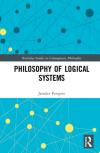
Philosophy of Logical Systems
This book addresses the hasty development of modern logic, especially its introducing and embracing various kinds of artificial languages and moving from the study of natural languages to that of artificial ones. This shift seemed extremely helpful and managed to elevate logic to a new level of rigor and clarity. However, the change that logic underwent in this way was in no way insignificant, and it is also far from an insignificant matter to determine to what extent the "new logic" only engaged new and more powerful instruments to answer the questions posed by the "old" one, and to what extent it replaced these questions with new ones. Hence, this movement has generated brand new kinds of philosophical problems that have still not been dealt with systematically. Philosophy of Logical Systems addresses these new kinds of philosophical problems that are intertwined with the development of modern logic. Jaroslav Peregrin analyzes the rationale behind the introduction of the artificial languages of logic; classifies the various tools which were adopted to build such languages; gives an overview of the various kinds of languages introduced in the course of modern logic and the motifs of their employment; discusses what can actually be achieved by relocating the problems of logic from natural language into them; and reaches certain conclusions with respect to the possibilities and limitations of this "formal turn" of logic.
Routledge, 2019
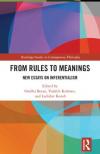
From Rules to Meanings: New Essays on Inferentialism
The book From Rules to Meaning brings together new essays that systematically develop, compare, assess and critically react to some of the most pertinent recent trends in inferentialism. The book's four thematic sections seek to apply inferentialism to a number of core issues, including the nature of meaning and content, reconstructing semantics, rule-oriented models and explanations of social practices and inferentialism's historical influence and dialogue with other philosophical traditions. With contributions from a number of distinguished philosophers - including Robert Brandom and Jaroslav Peregrin - this volume is a major contribution to the philosophical literature on the foundations of logic and language.
Routledge, 2018
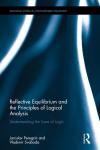
Reflective Equilibrium and the Principles of logical analysis
This book offers a comprehensive account of logic that addresses fundamental issues concerning the nature and foundations of the discipline. The authors claim that these foundations can not only be established without the need for strong metaphysical assumptions, but also without hypostasizing logical forms as specific entities. They present a systematic argument that the primary subject matter of logic is our linguistic interaction rather than our private reasoning, and it is thus misleading to see logic as revealing “the laws of thought”. In this sense, fundamental logical laws are implicit to our "language games" and are thus more similar to social norms than to the laws of nature. Peregrin and Svoboda also show that logical theories, despite the fact that they rely on rules implicit to our actual linguistic practice, firm up these rules and make them explicit. By carefully scrutinizing the project of logical analysis, the authors demonstrate that logical rules can be best seen as products of the so called reflective equilibrium. They suggest that we can profit from viewing languages as “inferential landscapes” and logicians as “geographers” who map them and try to pave safe routes through them. This book is an essential resource for scholars and researchers engaged with the foundations of logical theories and the philosophy of language.
Routledge, 2017
Inferences with Ignorance: Logics of Questions
Inferences with Ignorance focuses on two formal logic systems that employ the type of inferences in which questions are used in addition to statements. Not merely capturing questions as part of a logical apparatus, Michal Peliš also emphasizes the role of question-asking in communication. The book presents options for formalizing questions using sets of “direct answers,” demonstrates where questions are used in inferences, and explores asking questions and seeking answers as important components of everyday communication, proposing ways of using questions within a formal system that can capture a change in knowledge during this simple communication.
Karolinum, 2016

Inferentialism: Why Rules Matter
The term "inferentialism", coined by Robert Brandom, has become a trademark of a certain position in the philosophy of language which claims that meanings identify with inferential roles - a radical departure from more traditional semantic approaches. Independently of this, the term is now cropping up in logic, in connection with positions prioritizing proof-theory over model theory and approaching meaning in logical, especially proof-theoretical terms. The book brings these two strands together: it reviews and critically assesses the foundations of Brandomian inferentialism, it proposes upgrades, and it clarifies its relationship to inferentialism in logic. Emphasis is laid on clearly articulating the general assumptions on which inferentialism rests, thus elucidating its foundations, followed by discussing the consequences of this standpoint, and then dealing with the most intensive objections raised against the standpoint.
Palgrave Macmillan, 2014
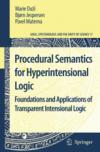
Procedural Semantics for Hyperintensional Logic (Foundations and Applications of TIL)
This volume sets out the foundations of Transparent Intensional Logic, together with many applications to a wide range of topics including formal semantics, philosophy of language, and philosophical logic. Special attention is devoted to some topics that generally tend to be dealt with only in passing. They include, inter alia, notional attitudes, knowing whether, concepts (understood rigorously and non-mentalistically),attitudes de re, and anaphora in hyperintensional contexts.
Springer, 2010

